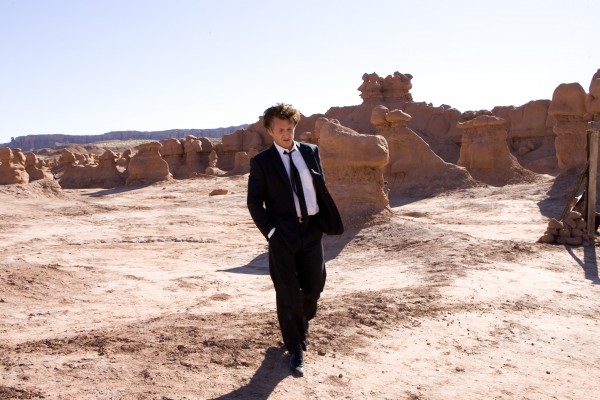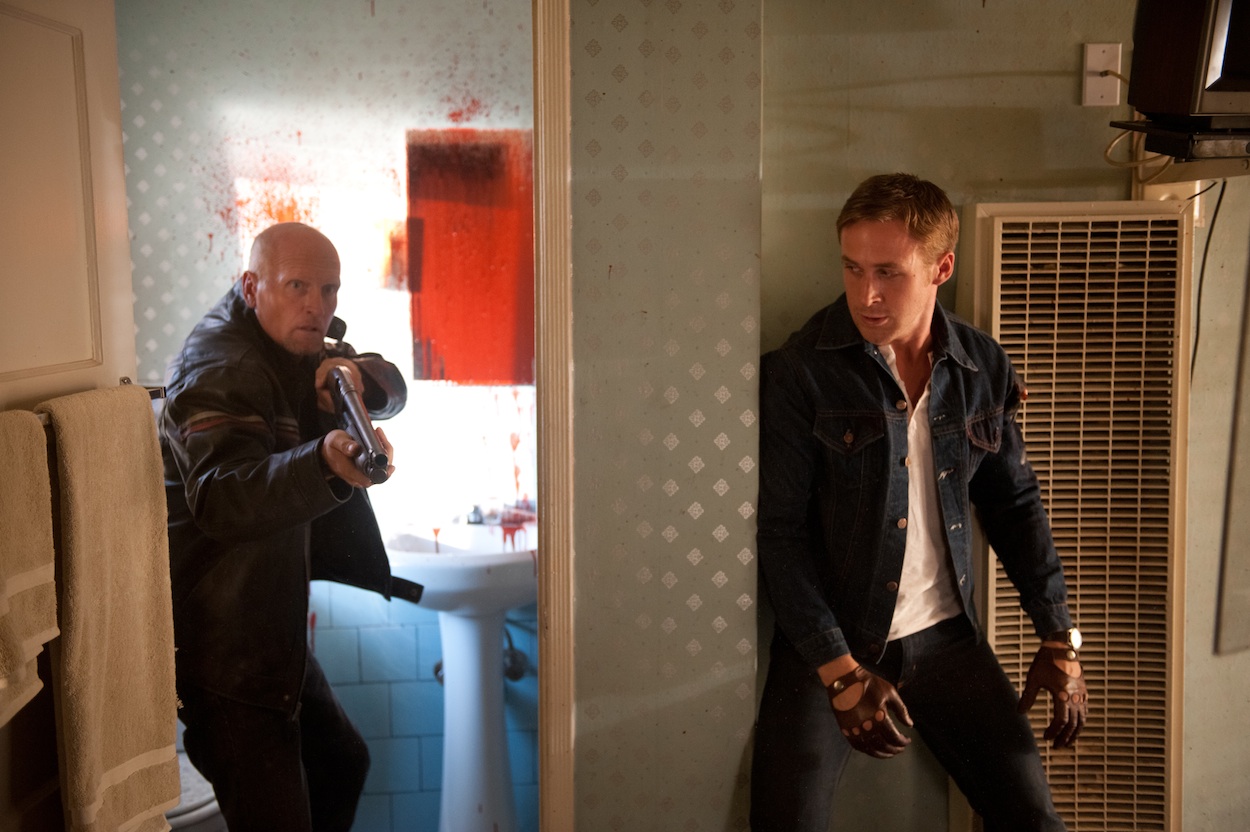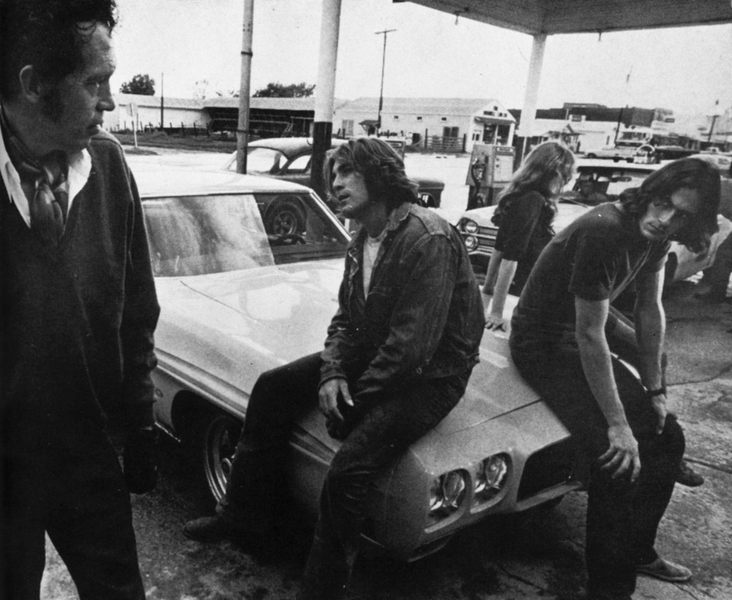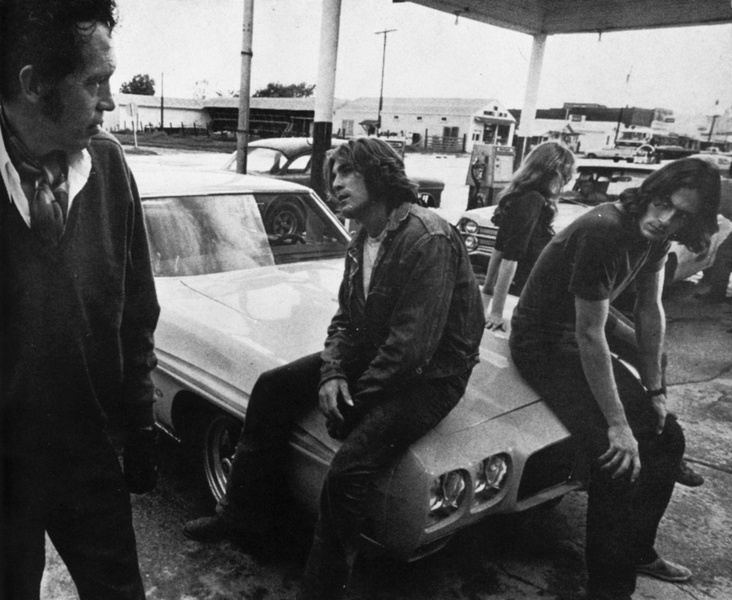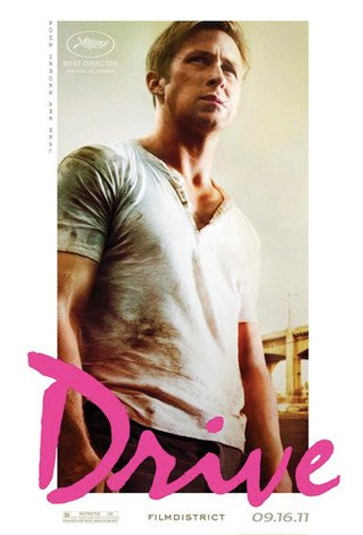Why Audiences Can’t Sit For or Stand The Tree of Life
What is most surprising about the premiere of The Tree of Life and its subsequent box-office failure due to a powerfully negative word of mouth is that if any film was the right film for the right moment (that moment being our living in a time of spiritual, economic, and environmental disasters), it is this wonder of images. The film presents the world as harmonious and cracked (humans are those fractured, nature is another story), yet spatial—intimate in childhood, while thunderingly antiseptic in the present day matrix of skyscrapers and homes equipped with plasma screens. As consumer culture tightens its grip on our souls, here is a piece of craftsmanship so sure of its place apart from imitation art (also known as Oscar bait—Dances with Wolves, et al.), that it happily eschews many drab protocols and the rub-a-dub sentimental stew of traditionally arching storylines and instead, gives us images that aren’t simple, that have to be read, that have to be reflected upon and interpreted, that ask us to share in their beauty rather than be repelled and manipulated by a gratuitous splatter of plot points and snappy, smarmy dialogue where one asshole rips another to bring the audience into the product’s fold, as so many of these products are the brainchild of some starstruck, cash-hoarding producer, or a Hollywood star struck by scandal, needing money to quell attorneys and so gleefully takes a gun or three and blows holes in the bad guys for a few hours more.
Teenwolf as Kafkian Experience

Teenwolf (1985) begins with the muffled sound of a basketball in place of, or competing with, a heartbeat — that of Scott Howard (Michael J. Fox), a lanky self-conscious high school student trying his very best at basketball. The conquest of men, drained of blood and necessity, finds its charade in contemporary American sports. The opening scene is shot from below, with Scott’s head prophetically eclipsing the round lunar overhead stadium light. Despite the brief elevated pulse, we see Scott under his pallor, unwittingly negotiating the complexities and politics of the external world, tightly mapped out on a basketball court. Comparisons to Goethe’s Young Werther, Salinger’s Holden Caulfield, and Dostoyevski’s narrator in Notes from the Underground are likely, though we all know the imminent metamorphosis into wolf (i.e. the postmodern “other”) is essentially Kafkian; thus, Teenwolf preserves the legacy of Kafka’s The Metamorphosis as the grotesque as metaphor for perceived self-deformity and body dysmorphic disorder. One may note, or at least this contributor, the inverse-POV angle of Scott looking at us from above, intent on our gaze, sweaty, as if we, or the cameraman, were fellating the young actor; though the space between these two orientations is collapsed by the camera’s super-consciousness, its pictorial convex sweep bestowed with omniscience, as if we, void of God, were desperate to find its robotic mascot. Hey boy, big boy, we think under muffled vowels at the film’s opening shot. It seems the director, in an act of cinemagraphic authority, has been careful to put us into place.
A short film by Ellen Frances
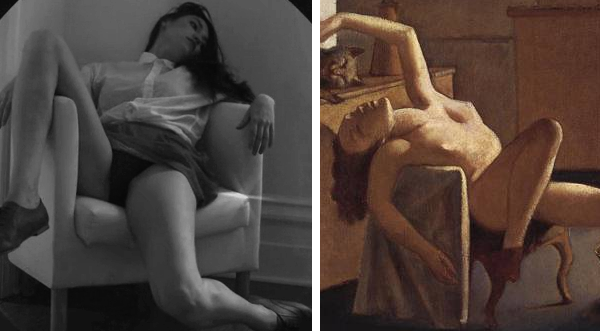
Ellen Frances, director and subject of her short film “Very Beautiful Woman” (2011, Pangur Ban Party) may well be aware of the evocative poses from which hers are derived, or not. Balthus (1908 -2001) has been criticized much for his erotic depictions of underage girls, often struggling in compromised and subordinate positions. Men may offer other men more to look at, but it takes a women to turn it into something formidable. I had to increase the RGB input level in the pic — to fill that room with light, virtually, miles away — to confirm that the dark patch between her legs were indeed panties and not the unkempt bounty of a more natural sort. I only speak so glibly in faith that my inclinations are at first respectful. Frances frames herself inside a cosmetic blush mirror, at first held in her hands, then in what is made to appear as a larger mounted wall mirror — the repeating circular motif functioning as a distancing viewfinder of some sort, lending a layer of documentary mediation and self-cognizance. With Cindy Sherman, Vanessa Beecroft [‘s subjects], and perhaps Miranda July, Frances stands in the company of women who have found ways to negotiate the expectations of their bodies without looking away.
On Popcorn
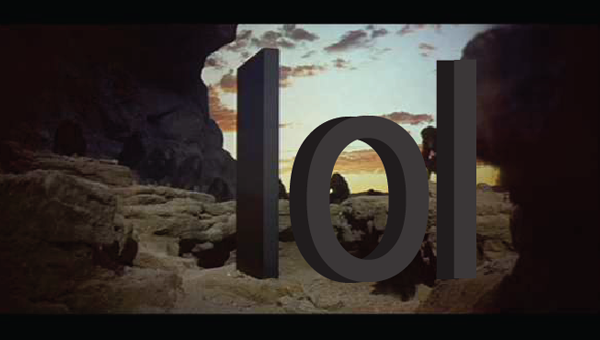
The following are reviews of films I either fell asleep to, fast forwarded through, or simply didn’t understand, written in a manner unabashedly ignorant of cases in mention, interspersed with meditations on popcorn.
2001: A Space Odyssey — First there’s apes everywhere and weird music, then an ape goes bizerk and slams the earth with a femur bone. And there’s a large Richard Serra type piece of steel just standing there and I’m like “yup, this is totally Stanley Kubrick,” yup, I’m about to experience three hours of weird slow shit. Then all I remember is a space man talks with a pretty lady like he’s buying a plane ticket. Then he walks through a corridor with bright lights, like the perfume section of Sephora or Macy’s. I end up 20x-60x fast forwarding through it until I’m at this 20 minute long Pink Floyd-type video full of effects or something, again, I can’t remember exactly, only that I was severely annoyed. Then the space man is in bed and there’s a gigantic baby. So I’m thinking that space and amniotic fluid is the same? And like we are apes? In Radiohead’s “No Surprises” video Thom Yorke dressed up as the space man and water filled the mask until he almost drowned, which was also annoying, like his current oily hair look. Kubrick had it wrong. In 2001 the world was still boring like in 1968, but Miley Cyrus didn’t exist, so that’s something.
Cliché as Necessity (Birthing Innovation)
Every time I’ve said something nice about Drive, someone has responded by calling the film “clichéd.” Well, I intend to keep saying nice things about Drive (as well as other artistic genre films), so let’s take some time here and now to address that criticism, demonstrating how even when certain material or situations might be clichéd, the artist can still find occasions for artistic expression. Indeed, I want to go so far as to suggest that clichéd situations often provide artists with some of the best opportunities for innovation.
Reminder! HTMLGIANT Meetup: “Two-Lane Blacktop” (Chicago)
This weekend (October 8th & 9th), Chicago’s Music Box Theatre is screening Monte Hellman and Rudy Wurlitzer‘s 1971 masterpiece Two-Lane Blacktop. Long overlooked, Two-Lane has for the past five years or so been enjoying a critical renaissance, and is increasingly regarded as one of the greatest films of the ’70s. (Click here to read some of my own thoughts on it.) And right now is an especially opportune time to see it, what with its grandchild Drive currently killing things in theaters.
There are two screenings, one Saturday, one Sunday, each at 11:30 AM. I’ll be attending the Saturday 11:30 AM show. Anyone care to join me? The movie is 102 minutes long and I was thinking we could grab a coffee afterward, before peeling out onto our nation’s highways.
(Yes, Two-Lane Blacktop really does star James Taylor and Dennis Wilson—in their only film roles! No, they don’t sing, nor is any of their music used in the movie. Yes, they’re both incredible—though it’s Oates who really steals the show.)
… And here’s Chicago Reader contributor Ben Sachs’s Cine-File write-up:
HTMLGIANT Meetup: “Two-Lane Blacktop” (Chicago)
This coming weekend (October 8th & 9th), Chicago’s Music Box Theatre is screening Monte Hellman and Rudy Wurlitzer‘s 1971 masterpiece Two-Lane Blacktop. Long overlooked, Two-Lane has for the past five years or so been enjoying a critical renaissance, and is increasingly regarded as one of the greatest films of the ’70s. (Click here to read some of my own thoughts on it.) And right now is an especially opportune time to see it, what with its grandchild Drive currently killing things in theaters.
There are two screenings, one Saturday, one Sunday, each at 11:30 AM. I’ll be attending the Saturday 11:30 AM show. Anyone care to join me? The movie is 102 minutes long and I was thinking we could grab a coffee afterward, before peeling off onto our nation’s highways.
(Yes, Two-Lane Blacktop really does star James Taylor and Dennis Wilson—in their only film roles! No, they don’t sing, nor is any of their music used in the movie. Yes, they’re both incredible—though it’s Oates who really steals the show.)
DRIVE
You’ve probably heard by now that Drive is very, very good. That’s because Drive is very, very good. Indeed, it’s about as good as a Hollywood film can be these days—it even bears comparison with the great B-movies of the late ’70s / early ’80s, which supposedly went extinct when Hollywood transformed itself into a industry of nothing but A-movies. (Box Office Mojo lists Drive’s production budget as $15 million, which is half as much as Woody Allen’s most recent film.)
After the jump is a spoiler-free list of ten things that I loved about the film.

